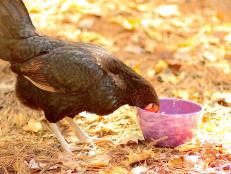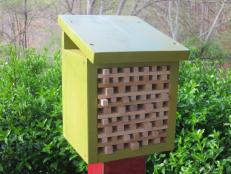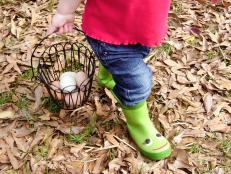Selling Backyard Chicken Eggs


Most backyard chicken hobbyists don’t start a new flock with plans for financial gain. The pleasure of fresh eggs and the joy of chicken ownership is enough to keep most engaged. For many of us, though, there comes a time when a growing flock and a steady surplus of eggs gets the wheels turning. Is there money to be made here?
After spending money to build a coop, buying maintenance equipment and populating the brood, it would probably be cheaper to head to the grocery store for your egg needs. Eventually, those costs will balance out, but the idea of subsidizing feed costs through the sale of your very own “farm fresh” eggs can be very appealing and well within reach if you know the rules and your flock is large enough to make it worth the effort.
Want to earn a little extra scratch selling eggs from your backyard chickens? Here’s how to get started.
Know the Laws
Federal regulations are fairly simple and accommodating when it comes to selling eggs from privately owned small flocks. For the small flock egg seller, no certifications or licenses are required, but labels must include contact information, “sell by” dates, eggs must be refrigerated and safe consumption warnings must be clearly visible. More stringent guidelines may be enforced at state and local levels regarding storage, packaging, labels and licensing. Check local statutes before opening up shop.
Where to Sell
Retail establishments are subject to different rules than the hobby egg producer. For the casual seller, eggs may be sold on-site or hand-delivered without a license, in most cases.
Grading Eggs
This is not required for private sale. Your eggs may be sorted by size, but are not to be declared to be “small, medium or large” on packaging. Instead, mark cartons as “Ungraded” or “Unsized.”
“Organic” and “Free Range”
These eggs are regulated classifications. Claims using these terms should be avoided without obtaining certification. Consider using alternate language like “Homegrown” or “Naturally raised” to reflect the quality of care given to your flock.
Washing Eggs
Eggs are laid with a protective coating that helps keep them fresh. Depending on your state regulations, you may wash them or leave the coating intact, but in any case, obvious dirt or fecal matter should be removed from the shell.
Refrigeration
Eggs intended for sale should be stored at temperatures of 35-45 degrees Fahrenheit.
Label Cartons
Be thorough when labeling cartons for sale. Include seller’s name, address and phone number, “sell by” date (30 days after laid), and required warnings. Some folks might even include the names of the producing chickens to give it a personal touch. Make sure all information is legible and the label is prominently displayed on the carton.
What to Charge
Although your eggs were raised with love and unparallelled care, even the most appreciative buyers know the price of eggs in their local market. A little markup isn’t out of the question, but they are still just eggs after all. Price accordingly.
For the backyard chicken enthusiast, selling eggs can be a rewarding way to use egg surpluses and offset the costs of maintaining a healthy (and perhaps growing brood). As you add new chickens to your flock, look for birds that are good layers or produce large or pretty eggs (green or pink eggs are always a hit with new buyers). Although you are unlikely to get rich selling eggs from your backyard chickens, selling just a few dozen a month can offset the ongoing costs of maintaining a backyard flock.













































